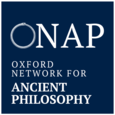Ancient epistemology - Graduate Seminar (MT 2024)
Thursdays, 9am–11am, Balliol College (Massey Room except week 3: Russell Room)
Convened by Prof Alex Bown and Prof Simon Shogry
Consider a day at the beach. The breeze feels pleasant to me but uncomfortably strong to you; the water seems lukewarm to me but freezing to you. Are we both right in these perceptual judgements? If so, is this because the breeze and the water have changed in the course of being perceived by me and by you? Or, rather, are we not even perceiving the same mind-independent things but instead in touch with objects that are private to each perceiver? Or perhaps we are not making unqualified judgements about the breeze and water? The former is pleasant-to-me, not pleasant simpliciter, and this is compatible with it being uncomfortably-strong-to-you. Or perhaps the water appears lukewarm to me, just as it appears freezing to you, but neither of these judgements amounts to a claim about how the water really is?
In this seminar, addressed to students in the MSt in Ancient Philosophy and BPhil, we will investigate Plato’s examination of the problem of conflicting appearances in the first section ofthe Theaetetus (up to 187a), where a relativist solution is explored and ultimately rejected. We will then consider how Plato’s discussion sets the agenda for later engagement with related epistemological issues in Aristotle, Epicureanism, Stoicism, and Pyrrhonian Scepticism.
Texts
We will be using the Levett-Burnyeat translation of Plato’s Theaetetus, which is inexpensive to purchase and available online here. For the Greek, use the Oxford Classical Texts edition (available online here).
In Week 5, we will read some of Aristotle’s Metaphysics, Book Gamma. A recommended translation is the one by Kirwan of Books Γ–Ε in the Clarendon Aristotle series, available online here. For the Greek, you should again use the Oxford Classical Texts edition (here).
In Weeks 6 and 7, on the Epicureans and Stoics, we will use Long and Sedley’s collection of texts, which includes translation and commentary (available online here).
In Week 8 we will conclude with Sextus Empiricus’ Outlines of Pyrrhonism. The Loeb translation, with facing Greek text, can be found here. We also recommend the translation by Annas and Barnes.
Student presentations are strongly encouraged. A provisional schedule is below. Please note the reading for Week 1 and try to complete it in advance of the first seminar. Check the course page on Canvas for PDFs of selected secondary readings.
Provisional Schedule
Week 1: Prologue, Knowledge is perception, and Protagoras’ “Measure Doctrine”
Plato, Theaetetus 142a-160e (= pp. 259-284 in Levett-Burnyeat translation)
Fine, G. “Protagorean Relativisms”, in her Plato on Knowledge and Forms (OUP, 2003), pp. 132-159.
Week 2: The “Secret Doctrine” and the Problem of Conflicting Appearances
Plato, Theaetetus 151d-160e (= pp. 271-284 in Levett-Burnyeat translation)
Fine, G. “Conflicting Appearances: Theaetetus 153d-154b” in her Plato on Knowledge and Forms (OUP, 2003), pp. 160-183.
Lee, M. “The Secret Doctrine in Plato's Theaetetus”, ch. 5 of her Epistemology after Protagoras: Responses to Relativism in Plato, Aristotle, and Democritus (OUP, 2005).
Week 3: Is Protagoras’ “Measure Doctrine” Self-Refuting?
Plato, Theaetetus 160e-172c (= pp. 284-299 in Levett-Burnyeat translation)
Fine, G. “Plato’s Refutation of Protagoras in the Theaetetus”, in her Plato on Knowledge and Forms (OUP, 2003), pp. 184-212
Castagnoli, L., 2004, “Protagoras Refuted: How Clever is Socrates' Most Clever Argument at Theaetetus 171a–c?”, Topoi 23: 3–32.
Week 4: The Final Refutation of Knowledge as Perception
Plato, Theaetetus 172c-187b (= pp. 300-318 in Levett-Burnyeat translation; focus especially on the passage from 184b-187b)
Lorenz, H. “Belief and Reason”, ch. 6 of The Brute Within (OUP, 2006), pp. 74-94. (The discussion of Theaetetus 184b-187b begins on p. 76.)
Menn, S. 2020. “On the Digression in the Theaetetus”. Oxford Studies in Ancient Philosophy 57, 65–120.
Week 5: Aristotle on Protagoras
Aristotle, Met. Γ 3–6 (esp. 5)
Wedin, M. V. 2004. “On the use and abuse of non-contradiction: Aristotle’s critique of Protagoras and Heraclitus in Metaphysics Gamma 5”, Oxford Studies in Ancient Philosophy 26: 213–239.
Lee, M. “Aristotle on Protagoras and the Theaetetus”, ch. 6 of her Epistemology after Protagoras: Responses to Relativism in Plato, Aristotle, and Democritus (OUP 2005).
Week 6: Epicurus on perception
Long, A.A. and Sedley, D. The Hellenistic Philosophers (CUP 1987), vol. 1, chapters 5, 7, 12, and 14–18.
Everson, S. “Epicurus on the truth of the senses”, in Companions to ancient thought 1: Epistemology, ed. by S. Everson, Cambridge 1990: 161–183.
Bown, A. “Epicureans on truth and relativism”, unpublished draft.
Week 7: Epicureans and Stoics on the contents of perception
Long, A.A. and Sedley, D. The Hellenistic Philosophers (CUP 1987), vol. 1, chapters 14–18, 39–41, and 53.
Frede, M. 1994. “The Stoic Conception of Reason”, in K.J. Boudouris (ed.), Hellenistic Philosophy (Athens: International Center for Greek Philosophy and Culture, 1994), pp. 50–61.
Schwab, W. and Shogry, S. 2023. “Epicureans and Stoics on the Rationality of Perception”. Philosophy and Phenomenological Research 106 (1), 58-8
Week 8: Conflicting Appearances and the 10 Modes of Aenesidemus
Sextus Empiricus, Outlines of Pyrrhonism (PH) 1.1-163 (skim from section 62 onwards)
Morison, B. 2011. “The Logical Structure of the Sceptic’s Opposition”. Oxford Studies in Ancient Philosophy 40, 265-295.




